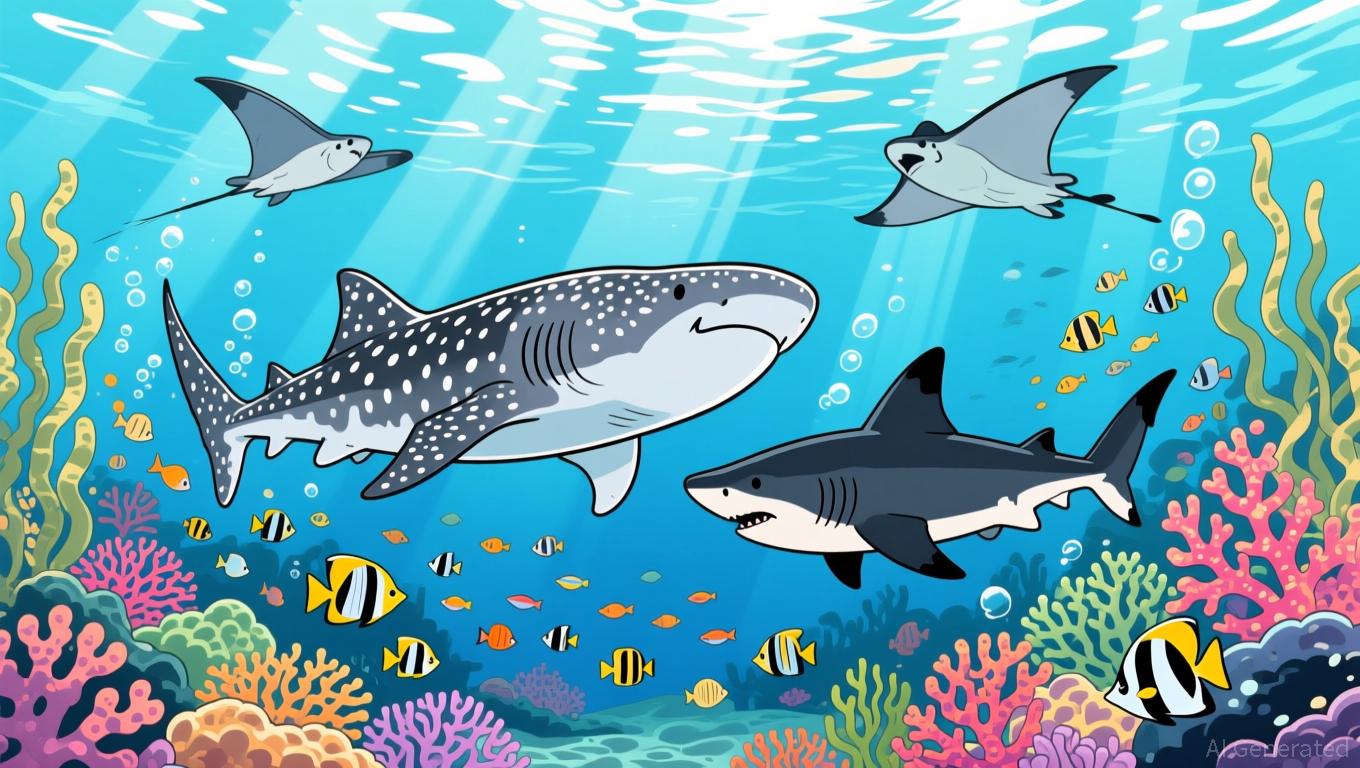XRP Pulls Back From $2.27 Peak Yet Maintains Uptrend Structure Above $2.15
Technical breakdown accelerates despite institutional product rollouts as XRP tests critical support amid broader market weakness.
News Background
- Multiple XRP ETFs launched throughout November, including Franklin Templeton’s EZRP on Nov. 18, joining Canary Capital’s XRPC and several Bitwise products.
- Combined first-week ETF flows exceeded $245 million, signaling substantial institutional interest during the rollout.
- Despite strong inflows, ETF trading volumes slid 55% from peak levels, reflecting diminishing retail enthusiasm.
- Broader crypto markets weakened as Bitcoin volatility increased ahead of its Death Cross event, dragging altcoins lower.
- ETF narratives created optimism, but market liquidity remained fragmented, limiting momentum for XRP despite increased institutional access.
Price Action Summary
- XRP fell 4.96% from $2.27 → $2.16, breaking below the $2.20 support level.
- Total session volume surged 54.56% above monthly averages, reaching 236.6M XRP traded.
- Breakdown triggered a slide to intraday low of $2.11 before recovering to the $2.15–$2.17 zone.
- Resistance formed at $2.28, while stabilization attempts clustered around $2.155–$2.166.
- Post-breakdown consolidation printed a tight range, indicating temporary seller exhaustion but no confirmed reversal.
Technical Analysis
- XRP’s reversal from $2.27 into a sharp decline toward $2.16 confirmed a full breakdown of its short-term bullish structure.
- The failure to reclaim the $2.28 resistance zone—coinciding with early-session ETF excitement—revealed that institutional product launches were insufficient to offset technical fragility in the underlying spot market.
- Volume expansion of 54.56% above monthly norms validated the selloff, particularly as the breach of $2.20 unleashed cascading stops and forced long liquidations.
- The intraday rebound from $2.11 demonstrated that buyers remain active beneath key support levels, but the recovery lacked volume conviction, stalling almost immediately at $2.18.
- This lack of follow-through underscores the current imbalance: strong ETF flows create structural demand, yet broader crypto risk-off conditions overpower near-term bullish catalysts.
- A bearish pennant formed through compression between $2.155 support and descending resistance at $2.18, suggesting that the market is coiling for another directional move.
- Momentum indicators remain bearish with price trading below key EMAs and showing no signs of trend reversal.
- The inability to lift beyond $2.18–$2.20 keeps XRP vulnerable to further decline, while the tightening range reflects market indecision rather than accumulation.
- For bulls to regain control, price must break above the pennant's upper boundary and reclaim $2.28—a threshold that now represents structural confirmation of regained upward momentum.
What Traders Should Watch Out For
- Traders must monitor whether XRP’s consolidation above $2.155 represents stabilization or simply a pause before continuation lower.
- The next catalysts remain ETF-related, with additional Bitwise launches scheduled through Nov. 25, though recent declines in ETF trading activity suggest diminishing short-term impact unless broader market sentiment improves.
- The $2.15 pivot is critical: holding the level offers potential for a bounce toward the $2.28–$2.30 corridor, while a decisive break below opens the door to a rapid selloff toward the $1.98 structural support cluster.
- XRP’s near-term trajectory will also depend on Bitcoin’s volatility regime—particularly whether BTC stabilizes after its Death Cross event or drags altcoins into deeper retracement phases.
Disclaimer: The content of this article solely reflects the author's opinion and does not represent the platform in any capacity. This article is not intended to serve as a reference for making investment decisions.
You may also like
Aave News Today: The Two Sides of DeFi: Aave's Expansion Increases Volatility Concerns
- Aave's AAVE token faces volatility risks near 0.57 support level, with whale accumulation and leveraged positions amplifying short-term instability. - A major Aave whale added 24,000 AAVE tokens (total 276,000) at $165 average cost, but remains vulnerable to repeat October 11 liquidation risks. - A $80M WBTC long position on Aave approaches $65,436 liquidation threshold, threatening forced selling and downward price pressure. - Tangem's Aave-integrated stablecoin yield feature highlights protocol's DeFi

Chainlink: The Bridge Connecting Crypto Isolates with Wall Street
- Grayscale positions Chainlink (LINK) as critical infrastructure linking crypto and traditional finance, citing its role in tokenization, cross-chain settlement, and RWA integration. - LINK's modular middleware enables secure data access and compliance, elevating it to the largest non-layer 1 crypto asset by market cap (excluding stablecoins). - Grayscale highlights Chainlink's partnerships with S&P Global and FTSE Russell, alongside a $35.6B tokenized asset market, as catalysts for institutional blockcha

CITES and Instant DNA Technology Aim to Uncover Covert Shark Trade and Prevent Species Disappearance
- CITES CoP20 in Uzbekistan proposes historic protections for 12 shark/ray species via Appendix I listings and stricter Appendix II monitoring. - Genetic testing reveals illegal shark trade volumes exceed official records by 10-70x, with Hong Kong as a key trafficking hub despite zero-export claims. - Portable DNA tools now enable real-time identification of 38 CITES-listed species, aiding enforcement in Indonesia, Ecuador, and other source countries. - Experts stress CITES is critical to prevent extinctio

HBAR's Liquidity Shortage Raises Concerns Over Market Volatility
- Hedera's HBAR token fell below $0.145 support to $0.1373, triggering liquidity concerns and bearish technical signals amid sharp volume collapses and trading halts. - Institutional selling and failed recovery attempts intensified on Nov. 18-20, with 71%-180% volume surges highlighting structural weakness and resistance breakdowns. - A descending channel pattern and exhausted buyer momentum suggest prolonged weakness, with critical support at $0.1457 now under pressure to prevent deeper declines. - Market
